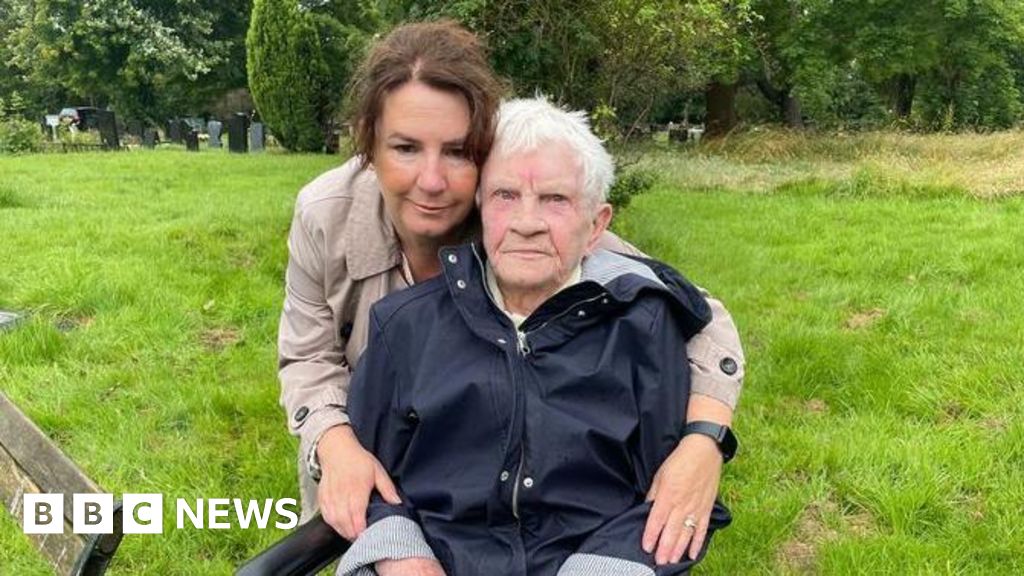Israel says it has rescued two hostages held by Hamas in Gaza’s Rafah refugee camp during a raid and airstrikes which local health officials say killed 67 Palestinians and wounded dozens more.
It comes amid growing fears of a major Israeli ground offensive into Rafah, a city for refugees in southern Gaza. Israel went ahead with Sunday night’s raid despite US president Joe Biden calling on Benjamin Netanyahu to hold off invading Rafah until a plan was in place that would prevent massive civilian casualties.
Early on Monday morning the Israeli military confirmed it conducted a series of strikes on southern Gaza that have now “concluded”. The military said it struck “terror targets in the area of Shaboura”, a district in Rafah.
An injured woman covered in blood holds a child’s hand, also injured, at Kuwait Hospital where they are brought for treatment following Israeli attacks on Rafah City
(Anadolu via Getty Images)
It added that two hostages were rescued from the captivity militants in Rafah. The hostages have been identified as 60-year-old Fernando Simon Marman and Louis Har, 70, both of whom were captured by Hamas from Kibbutz Nir Yitzhak during the group’s 7 October terror attack on southern Israel.
Louis Hare, an Israeli hostage who, according to the Israeli military, was freed on Monday
(via REUTERS)
“They are both in good medical condition, and were transferred for medical examination at the Sheba Tel Hashomer hospital,” a joint IDF and police statement read.
Fernando Simon Marman, an Israeli hostage who, according to the Israeli military, was freed in a special forces operation, is pictured in this undated handout photo
(via REUTERS)
Mr Netanyahu suggested Israel would look to carry out more rescue operations like Sunday night’s, in spite of the high death toll.
“Fernando and Louis, welcome home,” he said. “I salute our brave fighters for the daring action that led to their release.
“Only continued military pressure, until total victory, will bring about the release of all of our hostages. We will not miss any opportunity to bring them home.”
Heavy bombing on Sunday night caused widespread panic in Rafah – a city on the southern border with Egypt – where Palestinians fleeing Israel’s offensive and military advances have sought shelter. An estimated 1.4 million Palestinians are currently in the region after being displaced by Israel’s campaign against Hamas.
Israeli planes, tanks and ships took part in the strikes, hitting two mosques and several houses in the Strip, residents told Reuters.
Most of the Palestinians seeking refuge in Rafah were crammed into tents, makeshift shelters, schools or hospital grounds, having been uprooted multiple times by repeated Israeli evacuation orders over the past four months of war.
A destroyed mosque is seen following Israeli bombardments over Rafah in the southern Gaza Strip
(AFP via Getty Images)
“It was a very complex operation,” Israeli military spokesman Lt Col Richard Hecht said, adding: “We have been working a long time on this operation. We were waiting for the right conditions.”
Rear Admiral Daniel Hagari , another IDF spokesperson, called it “a complex rescue operation under fire in the heart of Rafah, based on highly sensitive and valuable intelligence from the Intelligence Directorate and the Israel Security Agency”.
He said the hostages were being held on the second floor of a building that was breached with an explosive charge during the raid.
The US president and Mr Netanyahu spoke on Sunday morning (US time) for about 45 minutes, days after Mr Biden said Israel’s military response in the Gaza Strip had been “over the top” and expressed grave concern over the rising civilian death toll in the Palestinian enclave.
Mr Biden “affirmed his view that a military operation in Rafah should not proceed without a credible and executable plan for ensuring the safety and support for the more than one million people sheltering there”, the White House said.
Mr Netanyahu’s office has said that it has ordered the military to develop a plan to evacuate Rafah and destroy four Hamas battalions it says are deployed there.
More than 28,000 Palestinians have been killed by Israel in retaliation against the 7 October attack by Hamas in southern Israel. Hamas militants killed 1,200 people and abducted at least 250 during the offensive, according to Israeli tallies.
Mr Netanyahu in an interview aired on Sunday said that “enough” of the 132 remaining Israeli hostages held in Gaza were alive to justify Israel’s war in the region.

Emily Foster is a globe-trotting journalist based in the UK. Her articles offer readers a global perspective on international events, exploring complex geopolitical issues and providing a nuanced view of the world’s most pressing challenges.






